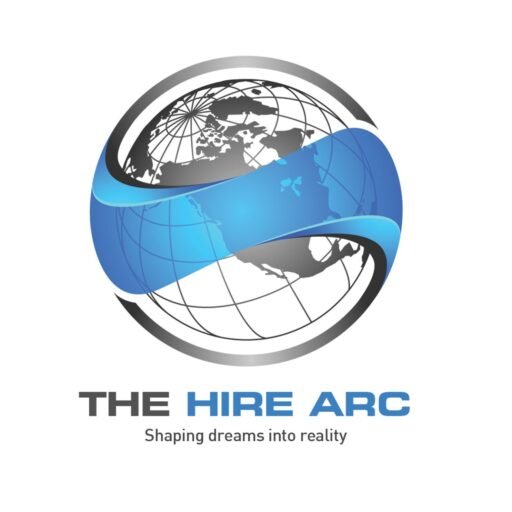Conducting an interview can feel daunting, especially if you’re new to hiring or handling multiple candidates. The good news? It doesn’t have to be complicated. With the right preparation, structure, and approach, you can run interviews efficiently, evaluate candidates fairly, and make confident hiring decisions.
In this guide, we’ll walk you through how to conduct an interview in 6 simple steps, covering everything from planning to concluding the session. We’ll also provide practical tips, common mistakes to avoid, and ways to make your interview process more effective.
Step 1: Plan the Interview
Before you even meet a candidate, planning is essential. A structured interview plan ensures you stay focused, ask the right questions, and evaluate candidates fairly.
Key activities during planning:
- Define the objective: Are you hiring for a technical role, managerial position, or temporary contract? Understanding the purpose of the interview helps you structure it effectively.
- Prepare the job description and candidate profile: Identify the essential skills, experience, and personality traits needed.
- Choose the type of interview: Will it be one-on-one, panel, technical, or behavioral? Deciding this in advance reduces confusion.
- Set the timeline: Allocate sufficient time for each stage and ensure both you and the candidate are prepared.
Related: If you’re looking to simplify your recruitment process, explore our Hiring Services in Mumbai.
Step 2: Prepare Questions
The next step is crafting a list of interview questions. Well-prepared questions help you assess the candidate thoroughly and avoid biased evaluations.
Tips for question preparation:
- Use a mix of question types:
- Behavioral questions (e.g., “Tell me about a time you solved a conflict at work.”)
- Situational questions (e.g., “How would you handle tight deadlines on multiple projects?”)
- Technical questions specific to the role
- Behavioral questions (e.g., “Tell me about a time you solved a conflict at work.”)
- Avoid illegal or irrelevant questions: Focus only on skills and qualifications.
- Create a scoring system: Assign points for answers to maintain consistency across candidates.
Step 3: Set Up the Environment
The interview environment can impact a candidate’s comfort and performance.
Consider the following:
- Choose a professional, quiet space: Ensure minimal distractions, good lighting, and a comfortable seating arrangement.
- Virtual interviews: Test audio, video, and internet connection beforehand. Use reliable platforms like Zoom or Teams.
- Timing: Schedule interviews when both parties are alert, ideally mid-morning or early afternoon.
Step 4: Start the Interview
How you start an interview sets the tone. A confident, friendly introduction helps candidates relax and show their best selves.
How to start an interview effectively:
- Introduce yourself and other panel members.
- Give a brief overview of the company and the role.
- Explain the structure of the interview.
- Ask some icebreaker questions to ease tension.
By starting professionally and warmly, you build trust and create a positive first impression.
Step 5: Conduct the Interview
Now comes the main part—conducting the interview. Here’s how to make it structured and productive:
Follow these stages of interview:
- Opening: Set expectations and clarify the purpose.
- Core questioning: Ask prepared questions and encourage detailed responses.
- Behavioral and situational assessments: Explore real-life experiences.
- Candidate queries: Allow the candidate to ask questions about the role and company.
- Evaluation: Take notes, score responses, and compare them against the job requirements.
Practical tips:
- Listen actively and avoid interrupting the candidate.
- Maintain eye contact and professional body language.
- Keep track of time to ensure all topics are covered.
Related: For background verification and assessment of candidates, check our Background Verification Services in Mumbai.
Step 6: Conclude the Interview
Ending the interview professionally is just as important as starting it.
How to conclude:
- Summarize the discussion briefly.
- Inform the candidate about the next steps and timelines.
- Thank them for their time and interest.
A clear and polite conclusion leaves a positive impression and encourages candidates to consider your company seriously.
Common Mistakes to Avoid
Even experienced interviewers can make mistakes. Here are some pitfalls to avoid:
- Unstructured interviews: Avoid asking random questions—stick to your plan.
- Bias: Avoid judging candidates based on appearance, accent, or background.
- Poor time management: Ensure each section of the interview has allocated time.
- Not taking notes: Accurate notes help in fair evaluation and decision-making.
Additional Tips for Effective Interviewing
- Consistency: Ask the same core questions to all candidates applying for the same role.
- Professionalism: Be courteous, listen actively, and maintain confidentiality.
- Feedback: Provide constructive feedback where possible.
- Follow-up: Coordinate with your recruitment team or leverage Contract-to-Hire Staffing Solutions to onboard candidates efficiently.
Conclusion
Conducting an interview doesn’t have to be stressful. By following these 6 simple steps—planning, preparing questions, setting up the environment, starting confidently, conducting effectively, and concluding professionally—you can hire the best candidates efficiently.Remember, structured interviews lead to fair evaluation, better hiring decisions, and a positive candidate experience. Combine this process with services like Background Verification or Contract-to-Hire Staffing Solutions to make your recruitment process seamless and reliable.
Frequently Asked Questions (FAQs)
Q1. What is the interview process?
The interview process includes planning, preparing questions, conducting the interview in stages, and concluding professionally.
Q2. How do you start an interview?
Start with introductions, explain the interview structure, and ask a friendly icebreaker question.
Q3. What are the stages of an interview?
Opening, core questioning, behavioral assessment, candidate queries, and evaluation.
Q4. How should interviewers prepare?
Create an interview plan, prepare questions, set up the environment, and coordinate with HR or staffing partners.
Q5. How can I conduct interviews virtually?
Use reliable video conferencing tools, ensure proper lighting and audio, and test technology before the session.
Q6. How can interviewers avoid bias?
Use standardized questions, scoring criteria, and objective evaluation methods.
Q7. How do you follow up after an interview?
Communicate next steps clearly and collaborate with your HR team or Hiring Services for onboarding.
- Insightful Questions to Ask Hiring Managers During Interviews - November 9, 2025
- Recruitment Challenges: What You Must Know in 2025 - November 9, 2025
- Recruitment Metrics and KPIs: The Complete 2025 Guide for Indian Recruiters - November 9, 2025


